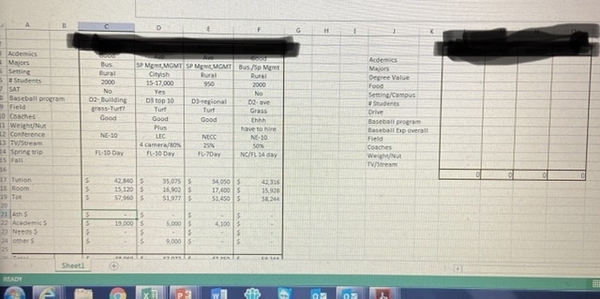I’ll throw this question I guess, I have my thoughts but honestly am at a loss to be sold totally either way. Coming up on a decision between A perennial high ranked D3 great facilities and established coach or a D2 rebuild with great facilities and a new respected young coach probably slightly better academically? Both in Northeast .
have at it, I’m all ears.
Sounds like two good choices, albeit one safer than the other, from a baseball program/facilities standpoint. But the college choice is so much more than that as has been discussed at length on this site.
Choice of major, school size, culture, baseball fit, social fit, tuition/room/board cost, proximity to home, coach fit, availability of development tools and coaching, weather, academic/tutoring support, class sizes, your gut feel for best fit, son's gut feel for best fit, mom's gut feel... etc., .. the list goes on. When you say "slightly better academics", are you referring to his chosen major specifically or overall? How slight? (questions for yourself, not to answer here on the forum).
You may want to make a list with all these things to include any others you can think of and see which one checks the most boxes. Then, group the line items by priority/importance and see if that changes anything. At the end of the day, what environment, academically, socially and athletically, do you see your son most likely to succeed? And, does he see it the same way?
If you are JUST asking based on the baseball aspect as you described, I have certainly seen more failure with "rebuilds by new respected young coaches" than "perennial high ranked with established coaches".


